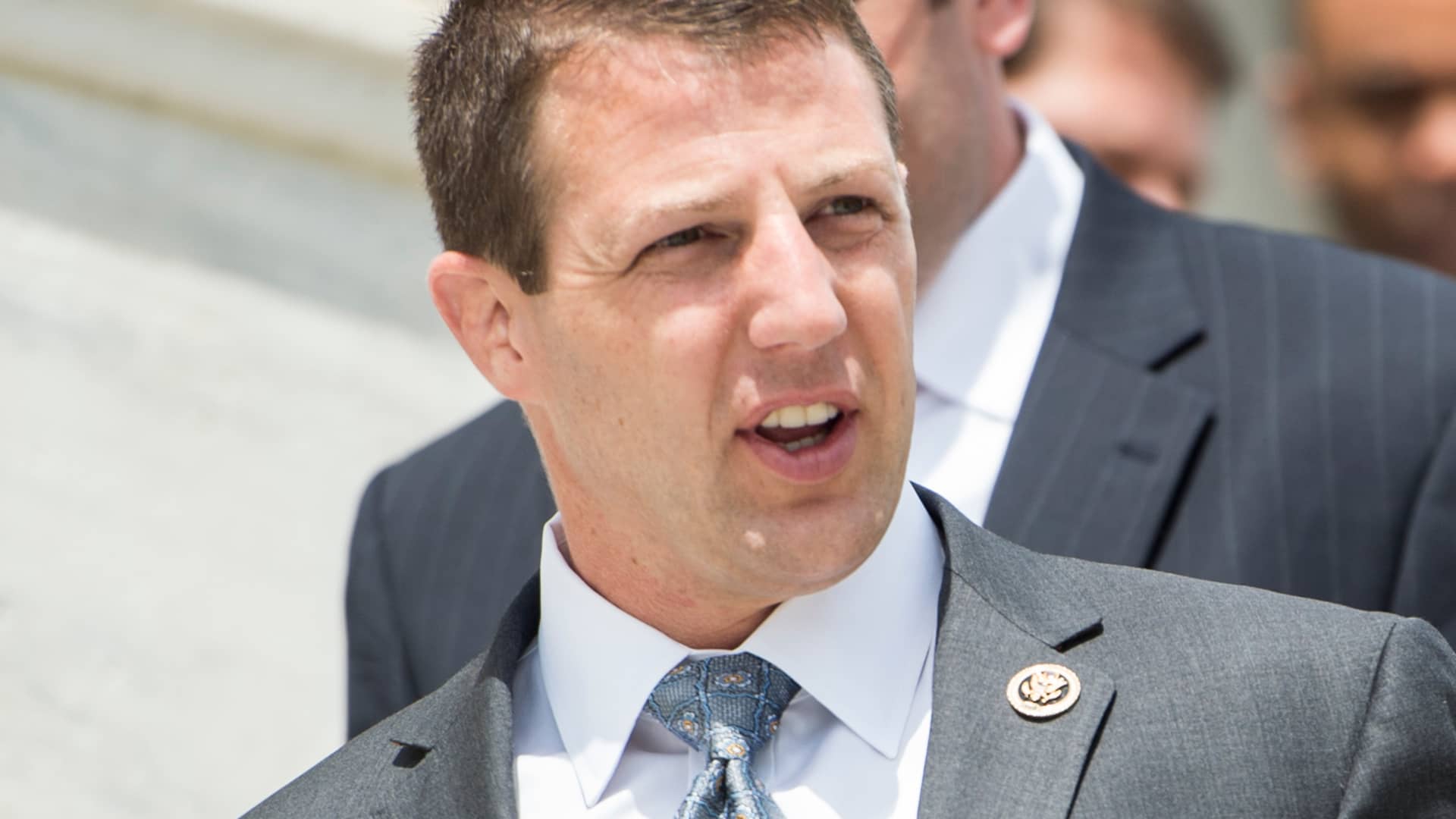Oklahoma Republican tells Teamsters president ‘shut your mouth’ in terse exchange at Senate hearing

WASHINGTON — A Republican lawmaker Wednesday told Teamsters General President Sean O’Brien to “shut your mouth” in a terse exchange at a hearing examining so-called union busting by U.S. companies.
The tense back-and-forth between O’Brien and Sen. Markwayne Mullin, R-Okla., escalated into a screaming match at a hearing before the Senate Health, Education, Labor and Pensions Committee.
The argument began after Mullin, who took over his family’s business Mullin Plumbing, at 20 after his father fell ill, complained that union pipefitters tried to intimidate him and his 300 plumbing employees to organize in 2019.
“They’d be leaning up against my trucks. I’m not afraid of a physical confrontation, in fact, sometimes, I look forward to it,” said Mullin, who also owns several other local businesses. “And that’s not my problem. But when you’re doing that to my employees?”
They also picketed outside his job sites, chanting ‘shame on Mullin,’ he said.
“‘Shame on Mullin?’ For what? Because we were paying higher wages … and we (weren’t) requiring them to pay your guys’ exorbitant salaries?” he asked.
O’Brien said the International Brotherhood of Teamsters had examples of employers illegally pressuring workers not to join unions.
Mullin, who also owns several other local businesses, questioned O’Brien’s six-figure salary. O’Brien was paid more than $300,000 in 2019, according to the most recent report of union leaders salaries by Teamsters for a Democratic Union, a grassroots organization of members, but the Teamsters leader actually took a pay cut when he was elected general president.
“As General President, elected in 2021 and inaugurated in 2022, Sean O’Brien took a cut to his base pay,” Kara Deniz, assistant director of the Department of Strategic Initiatives for the Teamsters told CNBC. “He now has a constitutionally mandated salary that tops out at $225,000 per year and is tied to inflation.”
“The real issue here there is a U.S. Senator claiming he makes $50,000 a year when he was investigated for ethics violations and has multimillion dollars in several companies,” Deniz said. “For him to act like some man of the people is pathetic.”
In 2018, Mullin was found to have broken House rules by appearing in a series of commercials for his plumbing businesses and receiving improper business payments. He was ordered to return $40,000 to the business, though the House Ethics Committee decided not to place financial sanctions on Mullin, according to the Washington Post.
“What do you bring for that salary? What job have you created, one job, other than sucking the paycheck out of somebody else … because you’re forcing them to pay dues?” Mullin asked O’Brien.
When O’Brien said Mullin was out of line, the lawmaker shot back: “You need to shut your mouth.”
“We created opportunity because we hold greedy CEOs like you accountable,” O’Brien told Mullin.
“I’m a greedy CEO? I kept my salary down at about $50,000 a year because I invested every penny,” Mullin said of his time as CEO of Mullin Plumbing.
“You mean you hid money?” O’Brien responded.
“You think you’re smart? You think you’re funny? No, no you’re not,” Mullin shot back as committee Chairman Bernie Sanders, I-Vermont, tried to quiet the outburst.
During his testimony, O’Brien said that half the senators on the committee “are only willing to offer right-to-work laws.”
“These laws lower wages, create substandard benefits and erode workers’ rights in every state where they’re passed,” he said.
States that have enacted legislation guaranteeing that employees won’t be forced to join a union or pay union dues as a condition of employment are considered “right-to-work” states, according to the Society for Human Resources Management. The American Federation of Labor and Congress of Industrial Organizations, the nation’s largest federation of unions, argues that the laws complicate union formation and collective bargaining for better wages, working conditions and benefits.
O’Brien said 1.3 million of his union members lost jobs and even their lives during the pandemic while large corporations like UPS and Kroger made record profits.
“They were going out, providing parcel delivery, providing food distribution, providing rubbish pickup, providing every essential service that we may take for granted at times and all the while, all these big corporations like UPS, Republic waste (Services), Kroger’s grocery warehouses, they were making record profits,” O’Brien said. “My members feel today, that they were taken advantage of. And I think there’s not only a lot of unionized workers but non-union workers that feel the same way.”
He said there aren’t consequences when CEOs and companies, calling out Starbucks and its CEO Howard Schultz by name, “break our laws instead of supporting legislation to protect our workers’ choice to join a union.”
Natasha Amadi, a spokesperson for UPS, said union membership within the company grew between Aug. 2018 and February of last year.
“The company added about 72,000 Teamster-represented jobs,” Amadi said. “That makes up a 25% growth rate in unions from UPS.”
UPS also hired 39,000 people to meet customer demand during the second quarter of 2020, Amadi said.
Representatives for Starbucks, Amazon, Republic Services and Kroger did not immediately respond to requests for comment from CNBC.
Mullin wasn’t the only committee member to point out incidents of harassment from union organizers. Sen. Bill Cassidy, R-La., asked the witnesses about an April 20 video showing a worker striking outside of an Amazon warehouse calling a female employee foul names, including “gutter b-tch.”
“This suggests that it’s valid to be concerned about harassment of employees who seek not to unionize,” Cassidy said.
— Correction: An earlier version of this story misrepresented the number of people UPS hired in the second quarter of 2020.
Article Courtesy of CNBC
